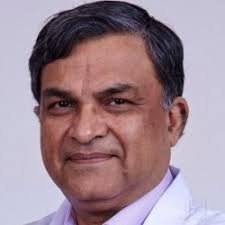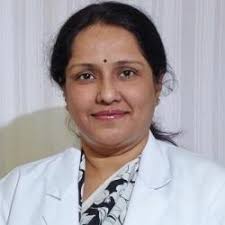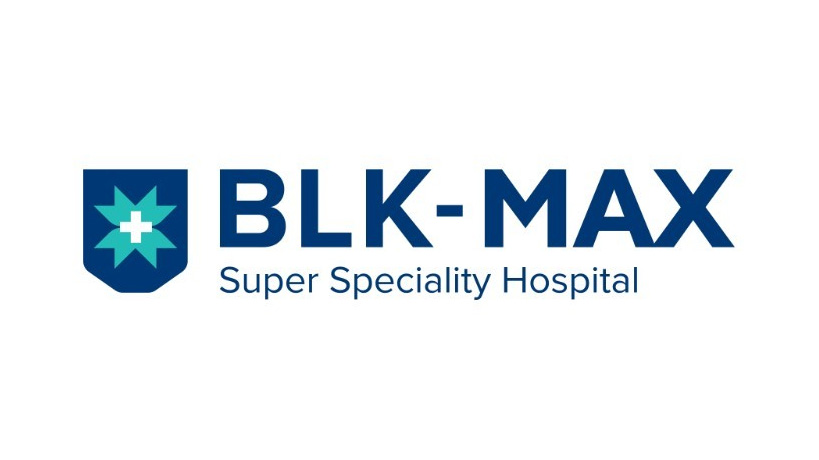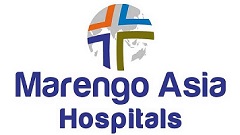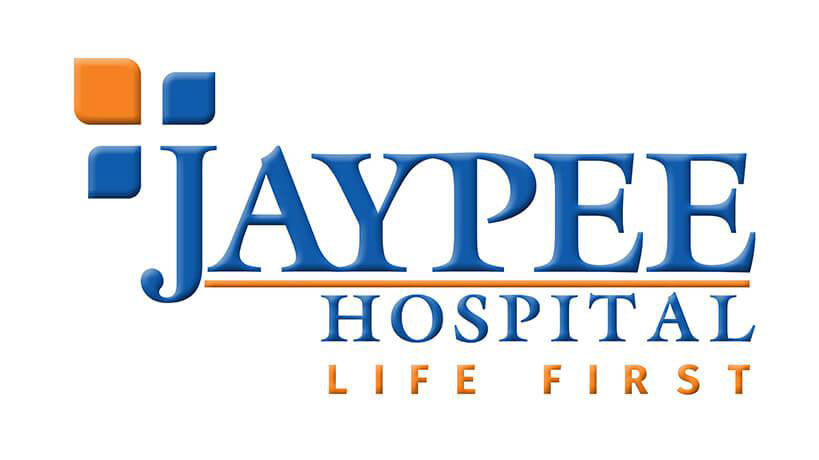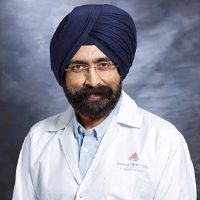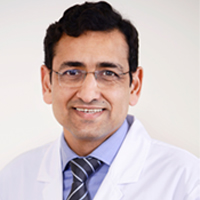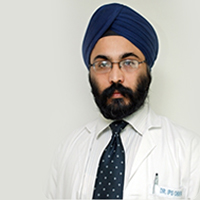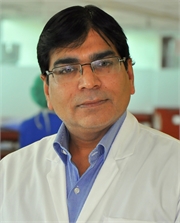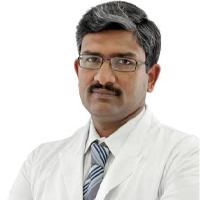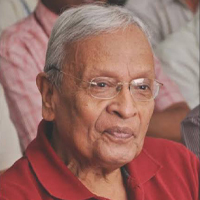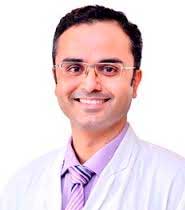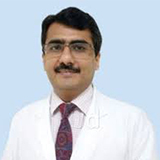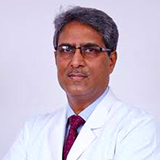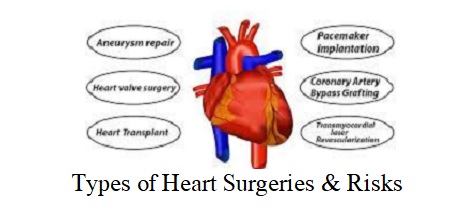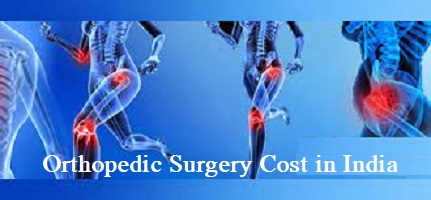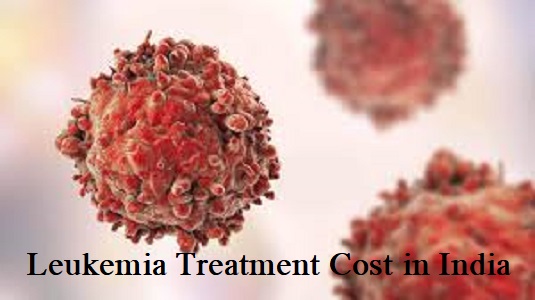
One of the crucial organs of the Human body is the stomach which is present in the middle upper side of the belly. It oversees the storage, digestion, and breakdown of food material. Stomach Cancer is a cancer that grows as an effect of a genetic mutation in the DNA of stomach cells.
Free Consultation: For Consultation, Send Us Your Medical Reports By WhatsApp at +91-9643 443 814Get Free Treatment Plan From Top Hospital
Attach Medical Report
Stomach Cancer- Causes, Symptoms, Diagnosis, Treatment, Cost and Recovery
One of the crucial organs of the Human body is the stomach which is present in the middle upper side of the belly. It oversees the storage, digestion, and breakdown of food material. Stomach Cancer is a cancer that grows as an effect of a genetic mutation in the DNA of stomach cells. They can happen in any area of the stomach but commonly develops in the stomach body or the main stomach part. About 95% of stomach cancers begin in the outer lining of the stomach and spread slowly. These cells then form tumours and spread rapidly through the exterior walls of the stomach. The cells get discarded into the main lymphatic stream. Stomach cancers are easily treatable in early stages, and if left untreated, this leads to cancer, and it can spread to several other organs, such as the liver and pancreas. Stomach cancer ranks as the eighth most frequent factor for higher death rates. Now, we are going to discuss in detail about stomach cancer treatment.
TYPES OF STOMACH CANCER
A malignant tumour that develops abnormally inside the inner lining of the belly area is known as Adenocarcinoma. Other rare cancer cells also begin in the centre and outer portions of the stomach. The most frequent cancer is commonly known as gastric cancer, but India’s expertise is in treating all types of stomach cancers.
Stomach cancers classify themselves into the following types:
- Adenocarcinomas- These arise from the glandular cells in the innermost lining of the stomach. About 90 to 95% of the cancer are Adenocarcinomas.
Two main kinds of Adenocarcinomas are as follows:
❖ Intestinal type Adenocarcinomas – They are slightly better projections. This cell growth has gene changes that allow targeted drug therapy as a form of treatment.
❖ Diffuse type of Adenocarcinoma tumour– The growth rate is rapid. It is less frequent and infrequent. It is rarely curable.
- Tumours affecting the Nerves of Endocrine glands (Neuroendocrine Tumours)- These cells behave similarly to endocrine and nerve cells. The digestive tract cell or stomach gives rise to the neuroendocrine system. While some spread and expand quickly, others grow slowly. Neuroendocrine tumours include carcinoid cells.
- Tumours affecting the Gastrointestinal tract (Gastrointestinal stromal tumours) – This sarcoma cell grows in a special kind of nerve of the digestive tract. The cells send signals to the digestive system to help food movement. Some Gastrointestinal tumours transmit through larger fatty tissues called the omentum. Other tissues covering the thin lining of the tissues are called peritoneum. The larger the GIST it is more likely to operate like cancer. They are soft tissue sarcomas.
- Tumour affecting the Lymph nodes (Lymphomas) – The cancerous cells develop inside the immune or lymphatic system. Some of the Lymphomas starts from the walls or other part of the stomach. The treatment of this cancer depends on different factors and the type of lymphomas. Most of them are non-Hodgkin’s lymphoma.
- Other similar Cancer tumours – Squamous cell carcinomas, leiomyosarcomas, and small cell carcinomas all initiate from the connective tissues of the stomach. These cancers are often rare.
THE CAUSES OF STOMACH CANCER
As per scientists, the exact cause of stomach cancer is unknown. Certain factors like diet and lifestyle upsurge the risk of developing cancer. Below are some risk factors for stomach cancer:
❖ Atrophic gastric cause infection of Helicobacter pylori microorganism affecting the stomach lining.
❖ A diet high in salty and processed foods
❖ Smoking and alcohol
❖ Growth of polyps in the stomach
❖ Eating less quantity of fruits and vegetables.
❖ Family history and genetics
❖ Older people above age 50 and so
❖ Overweight and obese
❖ Asbestos Exposure
❖ Males are at higher risk than females.
❖ Working in coal mines, timber and rubber industries.
❖ Virus infection Epstein-Barr
❖ Type – Blood group.
❖ Hereditary and geographical conditions
SIGNS AND SYMPTOMS OF GASTRIC CANCER
The initial symptoms are unnoticed due to unexpected weight loss and stomach pain. It can also be confused with other conditions and may not be dangerous. Each person will experience their symptoms differently.
A few of the most common primary signs are as follows:
- Indigestion and Heartburn
- Pain in the stomach
- Feeling uneasy and bloating
- Full stomach after eating less
- Swallowing problem and frequent burping
A few of the secondary symptoms are as follows:
- Bloody or black stool
- Appetite loss
- Loss of weight
- Vomiting blood
- Diarrhoea and constipation
- Weakness
DIAGNOSIS FOR STOMACH CANCER
The Gastrologist in India examines if a family history shows stomach cancer and enquires about the symptoms. He may perform a few physical examinations, recommending a few blood and stool test samples.
Multiple test methods detecting stomach cancers are as follows:
❖ Endoscopy
The specialist will pass a long, thin tube with a light and camera inside a patient’s digestive tract. It then cuts through the throat. They look for cancer in different parts of the stomach, oesophagus, and the top of the small intestine.
❖ Biopsy
The doctor will scrape a small area of the tissue and cells around the stomach. He may examine it under a microscope. It determines the nature and grade of the tumour.
❖ Laparoscopy
To examine the abdominal wall’s inner lining, a tiny portion of it is pulled using a laparoscope. The technique selects small tumours that are undetected by PET or CT scans. This technique can screen the remaining 20% of patients for the presence of a tumour.
❖ Ultrasound
Sonography determines the depth of tumour invasion. Endoscopic ultrasound can detect the different stages of cancer. It looks at the middle and the outside of the abdomen. It uses high-frequency ultrasound waves to get detailed pictures of the digestive system.
❖ Radiological tests
CT scans, MRIs, and barium swallows identify abnormalities and tumours in the cells. In barium swallow, the patient drinks a substance. Due to this, the abdomen linings become more visible to the Practioner during X-ray.
❖ Gastrectomy
The affected tissues and cells around the stomach or the whole stomach are operated on to remove surrounding lymph nodules.
STAGES OF CANCER
The treatment of stomach cancer in India depends on how the body holds the disease and the patient’s health condition. The extent to which it has spread is called the cancer stage.
❖ Stage 0 – The cancer cells grow only on the surface of the stomach linings. An early stage where cancer detects before it spreads to the lymph nodes. Endoscopic mucosal resection and EMR are the treatments done during this stage of stomach cancer.
❖ Stage I – This stage is when a tumour extends into deeper tissues of the abdomen. Surgery perforates to remove the affected part and the lymph nodes. If the cancer is slightly advanced, then chemotherapy is the best option.
❖ Stage II – The tumour in the stomach lining travels deeper to the lymph nodes and muscle layer. Chemotherapy and chemoradiation are treatments before and after surgery. Therapy shrinks the tumour before performing surgery to kill the tumour cells.
❖ Stage III- During this point, cancer progresses to all parts of the stomach as the spleen and colon. It is a small cell that spreads to one or more lymph nodes. The entire stomach operates with surgery, chemo and chemoradiation.
❖ Stage IV – This is the ultimate stage of cancer when it spreads through the brain, liver and lungs. Targeted therapy works well in this stage of cancer. Surgery acts to control the symptoms and helps swallow food properly.
The treatment and therapy depend upon various stages and survival rates. With early cancer detection in stage 0, the expected survival rate is 69.9%. In case cancer spreads to other organs. The survival rate directly drops down to 5.5%.
OPTIONS FOR STOMACH CANCER TREATMENT IN INDIA
India offers a wide range of treatments for Stomach Cancer. It depends on the health of the patients. The cancer progresses through its various phases. The many treatments and surgeries for stomach cancer in India performed include:
❖ Surgery
The main motive of the surgery is to operate the cancerous cells around the tissues. If a tumour detects in the early stage, it is removable. It’s achievable with the help of Endoscopic mucosal resection, partial and total Gastrectomy.
❖ Endoscopic mucosal resection
The specialist uses this technique during the early stages of stomach cancer. This operation is hustle free. The surgeon passes a long tube with a camera down the throat. Surgical tools pass through the endoscope. The interior region of the abdomen is cut open, along with the tumour.
❖ Total Gastrectomy
A Surgeon performs Gastrectomy when cancer has spread into the stomach. The surgery involves detaching the entire abdomen, nearby lymph nodes, omentum, spleen parts, and oesophagus. The oesophagus ends are attached to the stomach. It helps the food to travel down the intestine.
❖ Partial Gastrectomy
Surgery repairs the damaged parts of the stomach, oesophagus, and intestines. The remaining area of the stomach is attached after the procedure ends. Eating becomes easier by surgically removing a tiny area of the whole abdomen.
❖ Radiotherapy
A high-intensity radiation dose destroys the cancer cells. Due to the risk of harm to other organs, the usage of this therapy is rare. However, an oncologist
might recommend it as a treatment option in the most advanced cancer stage. This kind of therapy treats bleeding cell-induced anaemia. Patients must lie on a machine, and radiation passes through the stomach, with a radiographer holding the patient in the correct position. This method ensures that only cancer cells, not healthy cells, are destroyed. This treatment consists of five sessions per week. The effects of radiotherapy last up to 5 weeks to prevent cells from returning. In advanced stages, effects generally last for 1 to 2 weeks. Some of the side effects of this therapy are nausea, diarrhoea, tiredness and darkening of the skin.
Chemotherapy treats cancer at the 2nd and 3rd stages. Several medications work together to destroy the stomach tumour. It utilises a unique medicine called cytotoxic. Cytotoxic drugs prevent malignant cells from proliferating and growing. The procedure is employed once the cells have established themselves in remote places of the body. Neoadjuvant medications lower the number of cells before surgery. After the surgery, it destroys the remaining cells and is termed adjuvant. Neoadjuvant also aids in symptom relief in advanced cancer stages. You can use both radiation and this treatment at the same time. Some side effects include nerve damage, hair loss, nausea, vomiting and anaemia. Skin redness and weight loss are also possible side effects.
❖ Targeted medications
This treatment targets proteins produced by cancer cells. Ramucirumab and Trastuzumab are two immune-targeting medications. The targeted treatment uses systemic therapy in combination. It treats both cancer recurrence and cancer in stage 4.
❖ Immunotherapy
Immune cells protect the body by killing bacteria and foreign materials. Use of medication-assisted therapy, including cytokines, these medicines fight cancer cells investing the immune system. Biological treatment is another term for it. Advanced cancer or recurrent cancer is diagnosed with it. Patients get two or more combination therapies to help them live longer. The best Gastroenterologists in India advise the treatment according to the patient’s condition, age, stage and health. Side effects are fatigue, diarrhoea, mouth soreness, rashes, headaches, muscle pain, shortness of breath and pneumonitis.
The initial symptoms are unnoticed due to unexpected weight loss and stomach pain. It can also be confused with other conditions and may not be dangerous. Each person will experience their symptoms differently.
A few of the most common primary signs are as follows:
- Indigestion and Heartburn
- Pain in the stomach
- Feeling uneasy and bloating
- Full stomach after eating less
- Swallowing problem and frequent burping
A few of the secondary symptoms are as follows:
- Bloody or black stool
- Appetite loss
- Loss of weight
- Vomiting blood
- Diarrhoea and constipation
- Weakness

Top Stomach Cancer Doctors in India
Gastroenterologists in India are excellent at treating different types of stomach cancers. The top gastro specialist in India has international and national experience that is an outstanding help to diagnose and treat the disorder. The hospitals in India have trained and trusted staff, and they follow the guidelines laid by the specialist doctors and surgeons, ensuring the patient’s health, treatment and recovery. The nursing staff and health care team are available 24/7 for the care and well-being of the patients. The top gastrologist in India plans a treatment only after consultation and diagnosis of the patient and chalk out a treatment plan best suitable for the patient’s health.
For the best treatment of stomach cancer and stomach diseases, India can efficiently provide the best treatment and therapy for all types of stomach disorders with doctors and staff as trained and talented sources.
Below is the list of a few well-known Gastrologists in India
- Dr. Neeraj Goel, Max Superspeciality Hospital, New Delhi.
- Dr. Sandeep Batra, Max Super Speciality Hospital, Saket, New Delhi Max Super Speciality Hospital, Patpargan.
- Dr. Ankur Bahl Fortis, Memorial Research Institute – Gurgaon
- Dr. Sohan Lal Broor, Indraprastha Apollo Hospitals, New Delhi.
- Dr. Shelley Hukku, BLK-Max Super Speciality Hospital – Pusa Road, Delhi.
- Dr. Amitabha Dutta, Indraprastha Apollo Hospitals, Delhi.
- Dr. S.K. Thakur, New Delhi.
- Dr. Deepak Govil, Indraprastha Apollo Hospitals, Delhi.
- Dr. Shoaib Zaidi, Apollo Hospital, Delhi.
- Dr. Harit Chaturvedi, Max Super Speciality Hospital, New Delhi.
- Dr. Rayaz Ahmed, Max Smart Superspeciality Hospital, Saket, Delhi.
- Dr. Surajkumar K Agrawal, Alexis Multispeciality Hospital, Nagpur.
- Dr. Praveen Kumar Garg, Apollo Hospitals Delhi.
- Dr. Sameer Kaul, Indraprastha Apollo Hospitals, Delhi.
- Dr. Hari Goyal, Artemis Hospitals, Gurgaon.
- Dr. Suman Karanth Gupta, Fortis Memorial Research Institute, Gurgaon.
- Dr. Manish K Gupta, Metro Multispeciality Hospital, Delhi.

Best Stomach Cancer Hospitals in India
A crucial first step in dealing with stomach cancer is picking the best hospital. Are you searching for the best stomach cancer treatment hospital in India for stomach cancer treatment in India? The stomach cancer hospitals in India with the most cutting-edge equipment and modern technology are appropriate for stomach cancer treatment. It is essential to consider a highly competent paramedical staff and team of oncologists with medical, surgical, and radiology specialities. Every hospitals and experts have success and survival rates depending on the facilities provided. India has various hospitals for stomach cancer in different states with excellent infrastructure and medical teams to assist the patient and provide care 24/7. The stomach cancer hospitals in India have all amenities, such as test labs, radiology labs, etc, under one roof for convenience. Some of the best stomach cancer treatment hospitals in India are given below-
- Apollo Hospital, Delhi
- Fortis Hospital, Gurugram.
- Artemis Hospital, Gurugram.
- Apollo Hospital, Hyderabad.
- Kokilaben Dhiru Bhai Ambani Hospital, Mumbai.
- Seven Hills Hospitals, Hyderabad.
- Nanavati Hospital, Mumbai.
- Medanta-The Medicity, Gurugram.
- Jaslok Hospital, Mumbai.
- Apollo Cancer Specialty Hospital, Chennai
- Max Super Specialty Hospital, New Delhi.
- BLK Super Specialty Hospital, New Delhi
- Artemis Hospital Gurgaon Malar Hospital, Chennai
- American Oncology Institute, Lingampally, Hyderabad
- Indraprastha Hospitals, Sarita Vihar, Delhi
Book An Appointment for Stomach Cancer Treatment

Get Free Treatment Plan From Top Hospital
Attach Medical Report

Cost of Stomach Cancer in India
There are different options of stomach cancer treatment in India. The stomach cancer treatment cost in India depends on the various stages and types of cancer. It entirely depends on the location of cancer cells in the stomach, the advancement in facilities provided, and the stages of cancer. The treatment for stomach cancer in India is nearly half the rate compared to Western countries. India contributes to the excellent treatment of stomach cancer at affordable rates. Local and international tourists choose the best stomach cancer hospital in India for treatment. Medical professionals, well-trained nurses, and post-surgery care teams can effectively manage patients at the best and most affordable prices. The stomach cancer treatment cost in India is around Rs 2.10 lakh to 5.75 Lakhs. The price may differ from hospital to hospital as per the location and facilities available. Below are the approximate cost of a few cities in India
The stomach cancer treatment cost in India is around $2500 to $7000.
Hyderabad $2500 to $6000.
Bangalore $2200 to $6000.
Mumbai $4500 to $7000.
Chennai $2000 to $6000.
Delhi $1500 to $5500.”

Success Rate of Stomach Cancer Treatment in India
The treatment and therapy depend upon various stages and survival rates. With early cancer detection in stage 0, the expected survival rate is 69.9%. In case cancer spreads to other organs. The survival rate directly drops down to 5.5%.
Contact Form
Attach Medical Report
FAQs (FAQs (Frequently Asked Questions))

What is stomach cancer?
Stomach or gastric cancer can begin with abnormal growth and division in the inner lining of your stomach. As the malignancy progresses, the cancer cells penetrate your stomach walls.
What are the symptoms of stomach cancer?
The symptoms of stomach cancer are –
- Heartburn or acid reflux
- Having difficulty swallowing
- Stomach pain
- Feeling bloated or gassy after eating
- An unexpected loss of weight
- Indigestion
- Black or bloody stool
- Nausea and vomiting
What are the risk factors for developing stomach cancer?
The risk factors for getting gastric cancer are –
- Stomach cancer occurs more commonly in people over 55s.
- Men are more likely than women to develop stomach cancer.
- Helicobacter pylori, also called H. pylori the bacteria causing problems stomach ulcers, and inflammation. Bacteria are considered to be the leading cause of cancer.
- Stomach polyps or (noncancerous cells in the stomach).
- Family history of stomach cancers.
- Smoking or consuming tobacco.
- High alcohol consumption
- Obesity
- Low fruit and vegetable diet
- High salt high-fat diet, or excessive smoky and pickled foods
What are some of the best hospitals for stomach cancer in India?
Some of the best hospitals for stomach cancer treatment in India are-
- Artemis Hospital, Gurgaon
- Apollo Hospital, Delhi
- Indraprastha Apollo Hospital, New Delhi
These hospitals have excellent infrastructure and a dedicated cancer wing to treat cancer. They have full-spectrum diagnostic, medical, and surgical services providing customized treatment for stomach cancer with a highly-specialized and dedicated team of medical professionals.
What are the different stages of stomach cancer?
Doctors use the TNM staging system or tumor, node, and metastasis to describe the spread or stage of cancer.
There are 5 stages from stage 0 and stage 5. The different stages are –
- Stage 0 or high-grade dysplasia – In this stage refers to the abnormal cell growth in the inner lining of the stomach.
- Stage 1: – cancer has not passed the dense muscles of the stomach wall.
- Stage 2: cancer has spread through the different muscular layers of the stomach but has not spread into the peritoneal lining or serosa. One or two lymph nodes may be affected.
- Stage 3: cancer has spread through the different layers of muscles and into the serosa or peritoneal lining. Cancer has spread into the subserosa layer but has not spread through all the layers of the stomach and is detected in 7 to 15 lymph nodes but not any other organ.
- Stomach 4: Cancer has spread to other organs.
What is the best stomach cancer treatment in India?
Stomach cancer treatment depends on the stage and type of cancer and your age and general health. Your doctor may recommend surgery if they remove cancerous stomach cells by performing a partial or total gastrectomy i.e. remove part or the entire stomach. The surgeon may remove lymph nodes close to the stomach and surrounding healthy tissues. They may insert feeding tubes into the small intestine.
Chemotherapy is another cancer treatment and uses anti-cancer drugs generally injected into the bloodstream or given orally. Chemotherapy is generally given after surgery. Chemotherapy and radiation may be used together. Radiation uses focuses high-energy rays to kill cancer cells.
Can stomach cancer be cured?
While it is not always possible to cure stomach cancer, there are ways to reduce symptoms and enhance the quality of life using treatments like chemotherapy, radiation, and surgery. As long as the surgeon removes the cancerous tissues, stomach cancer is treatable.
What is the survival rate for stomach cancer?
The chances of surviving stomach cancer vary according to the stage of cancer. The five-year survival rates are –
- Stage I: 55% to 60%
- Stage II: 45% to 50%
- Stage III: 35% to 40%
- Stage IV: 5% to 10%
The survival rate drops dramatically in the advanced stages of the disease. It is critical to diagnose and treat the disease early diagnose.
How common is stomach cancer in India?
Stomach cancer is quite common in India. Gastric cancer is the fifth-most prevalent cancer in males and the seventh-most prevalent cancer in women.
Does diet play a role in the development of stomach cancer?
Yes, your diet plays a role in the development of gastric cancer. It has been linked to high-fried food, processed food, and seafood diet. It has also been linked to high alcohol consumption. A diet low in vegetables, fruits, and milk has been related to an increased risk of stomach cancer.
Are there any genetic factors that increase the risk of stomach cancer?
Yes, there are genetic factors that can increase the risk of stomach cancer. Some people are at increased risk of developing gastric cancer from their parents. However, this percentage is quite small. If your parents, children, or siblings have had stomach cancer are more likely to get the disease. The majority of people who get gastric cancer do not have a family history of the disease. Certain inherited diseases like hereditary diffuse gastric cancer (HDGC) and Lynch syndrome are inherited conditions that greatly increase your chances of stomach cancer.
Can stomach cancer be detected through screening tests?
Stomach cancer screening tests are performed on individuals without symptoms to check for stomach cancer. This is known as screening for stomach cancer. The purpose is to find stomach cancer early while it is treatable. It is useful if you are in the high-risk category. The upper endoscopy is the most frequently used procedure to find stomach cancer.
During an upper endoscopy, a flexible tube with a camera at one end is passed via the mouth and into the stomach. Your doctor can examine the stomach lining for any anomalies and perform a biopsy if required.
Imaging tests like CT scans, x-rays, and PET scans can point to abnormal growths or tumors in the stomach.
How does chemotherapy work for stomach cancer?
Chemotherapy uses anti-cancer medication that is given orally as pills or via injection into a vein. The medication penetrates the bloodstream to reach every part of the body. Chemotherapy is useful if cancer has spread beyond the stomach. It can be given before or after the surgery. The treatment can help shrink the tumor before the surgery or help kill any cancerous cells left after surgery. In some cases, chemotherapy is the primary method to treat cancer.
What are the potential side effects of stomach cancer treatment?
There are physical and emotional side effects to stomach cancer treatment. Some physical side effects include –
- Feeling of fatigue
- Vomiting and nauseous
- Dysentery
- Poor appetite
- Loss of hair
- Pain in joints
- Insomnia
Stomach cancer can cause emotional issues like depression and anxiety.
What are the top 10 best stomach cancer hospitals in India?
The top 10 stomach cancer hospitals in India are –
- Artemis Hospital, Gurgaon
- Medanta – The Medicity, Gurgaon
- BLK Super Speciality Hospital, New Delhi
- Dharamshila Narayana Superspeciality Hospital, New Delhi
- Fortis Memorial Research Institute, Gurgaon
- Kokilaben Dhirubhai Ambani Hospital, Mumbai
- Indraprastha Apollo Hospital, New Delhi
- Gleneagles Global Hospital, Chennai
- Max Super Speciality Hospital, Saket, New Delhi
- Manipal Hospital, Delhi
What are top 10 best stomach cancer doctors in India?
Top stomach cancer doctors at Artemis Hospital
- Dr. Hari Goyal, Oncologist
- Dr. Dugatosh Pandey, Surgical Oncologist
Top Doctors & Surgeons in India
Why Choose Us

Personalized Care
24x7 Supports
Top NABH and JCI accredited Hospitals
Free Cost Estimation & Medical Opinion from Specialist
Get Free Tele/Video Consultation
Visa and Traveling Assistance
Post-surgery with Assistance in Follow-ups

